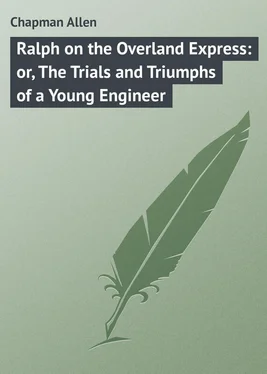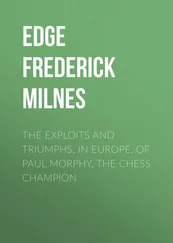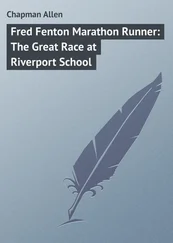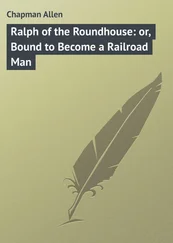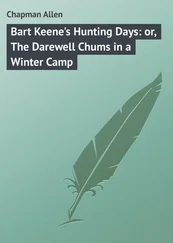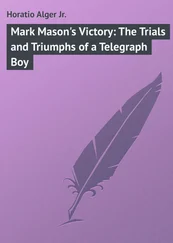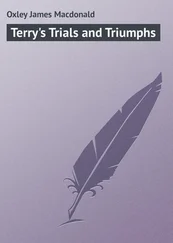Allen Chapman - Ralph on the Overland Express - or, The Trials and Triumphs of a Young Engineer
Здесь есть возможность читать онлайн «Allen Chapman - Ralph on the Overland Express - or, The Trials and Triumphs of a Young Engineer» — ознакомительный отрывок электронной книги совершенно бесплатно, а после прочтения отрывка купить полную версию. В некоторых случаях можно слушать аудио, скачать через торрент в формате fb2 и присутствует краткое содержание. Жанр: foreign_prose, foreign_children, на английском языке. Описание произведения, (предисловие) а так же отзывы посетителей доступны на портале библиотеки ЛибКат.
- Название:Ralph on the Overland Express: or, The Trials and Triumphs of a Young Engineer
- Автор:
- Жанр:
- Год:неизвестен
- ISBN:нет данных
- Рейтинг книги:5 / 5. Голосов: 1
-
Избранное:Добавить в избранное
- Отзывы:
-
Ваша оценка:
- 100
- 1
- 2
- 3
- 4
- 5
Ralph on the Overland Express: or, The Trials and Triumphs of a Young Engineer: краткое содержание, описание и аннотация
Предлагаем к чтению аннотацию, описание, краткое содержание или предисловие (зависит от того, что написал сам автор книги «Ralph on the Overland Express: or, The Trials and Triumphs of a Young Engineer»). Если вы не нашли необходимую информацию о книге — напишите в комментариях, мы постараемся отыскать её.
Ralph on the Overland Express: or, The Trials and Triumphs of a Young Engineer — читать онлайн ознакомительный отрывок
Ниже представлен текст книги, разбитый по страницам. Система сохранения места последней прочитанной страницы, позволяет с удобством читать онлайн бесплатно книгу «Ralph on the Overland Express: or, The Trials and Triumphs of a Young Engineer», без необходимости каждый раз заново искать на чём Вы остановились. Поставьте закладку, и сможете в любой момент перейти на страницу, на которой закончили чтение.
Интервал:
Закладка:
Ralph did not speak. He smiled slightly, and the keen-eyed intruder noticed this and gave him a sharp look.
“Old racket, eh? Too flimsy?” he propounded with a quizzical but perfectly good-natured grin. “I suppose they play all kinds of official relationships and all that on you fellows, eh?”
“Yes,” said Ralph, “we do hear some pretty extravagant stories.”
“I suppose so,” assented the youth calling himself Marvin Clark. “Well, I don’t want to intrude, but if there’s room for myself and my credentials, I’d rather keep you company than free pass it in the parlor coach. There you are.”
As the boy spoke of “credentials,” he drew an unsealed envelope from his pocket and handed it to Ralph. The latter received it, noting that it bore in one corner the monogram of the Great Northern, with “President’s office – official business” printed under it. He withdrew the enclosure and perused it.
The sheet was a letter head of the Middletown & Western Railroad. It bore on one line in one handwriting the name “Marvin Clark,” and beneath it the words: “For identification,” in another handwriting, and the flourishing signature below “Nathaniel Clark, President.”
In typewriting beneath all this were the words: “Pass on all trains, Marvin Clark,” and below that a date and the name in writing of Mr. Robert Grant, the President of the Great Northern, unmistakably genuine. There were few employees on the road who were not familiar with that signature.
“All right,” said Ralph, refolding the sheet, re-inclosing it in the envelope, and handing it back to the stranger. “I guess that passes you anywhere on the line.”
“You see, I’ve got a sort of roaming commission,” explained young Clark buoyantly, as he got comfortably seated on the fireman’s cushion. “No particular use at school, and father wants me to learn railroading. The first step was to run down all the lines and pick up all the information I could. I’ve just got to put in two months at that, and then report to family headquarters my store of practical knowledge. See here.”
Marvin Clark drew a blank from his pocket. Some thirty of its pages he showed to Ralph were filled with memoranda. Thus: “Aug. 22, cattle freight, Upton to Dover. O. K. Simpson, Conductor.” There followed like items, all signed, forming a link of evidence that the boy had been a passenger on all kinds of rolling stock, had visited railroad shops, switch towers, water stations, in fact had inspected about every active department of several railroad lines that connected with the Middletown & Western Railroad.
“That is a pretty pleasant layout, I should say,” remarked Ralph.
“Oh, so, so,” replied Clark indifferently. “Athletics is my stronghold. If I ever get money enough – I mean if I had my own way – I’d train for expert on everything from golf to football.”
“I’m pretty strong in that direction myself,” said Ralph, “but a fellow has to hustle for something to eat.”
“I know what that means,” declared Clark. “Had to help the family by peddling papers – .”
Clark paused and flushed. Ralph wondered at the singular break his visitor had made. A diversion covered the embarassment of the young stranger and caused Ralph to momentarily forget the incident. Fogg had swung back the water spout, set the tender cover, and climbed down into the cab. Then he took the side light signals and went around to the pilot. No. 999 carried two flags there, now to be replaced by lanterns. Fogg came back to the cab rolling up the flags.
“All right,” he announced ungraciously, and hustled Clark to one side without ceremony as the latter abandoned his seat. Ralph gave the starting signal and Clark edged back in the tender out of the way.
The young engineer took a good look at his fireman. The latter was muddled, it was plain to see that, but he went about his duties with a mechanical routine born from long experience. Only once did he lurch towards Ralph and speak to him, or rather hiss out the words.
“You’ll settle with me for your impudence yet, young fellow. You’re a high and mighty, you are, breaking the rules giving your friends a free ride.”
Ralph did not reply. One anxiety kept him devoted to his work – to lose no time. A glance at the clock and schedule showed a ten minutes’ loss, but defective or experimental firing on a new locomotive had been responsible for that, and he counted on making a spurt, once beyond Plympton.
Marvin Clark knew his place, and Ralph liked him for keeping it. The young fellow watched everything going on in the cab in a shrewd, interested fashion, but he neither got in the way of the cross-grained Fogg, nor pestered Ralph with questions.
Plympton was less than five miles ahead just as dusk began to fall. Ralph noticed that his fireman rustled about with a good deal of unnecessary activity. He would fire up to the limit, as if working off some of his vengefulness and malice. Then he went out on the running board, for no earthly reason that Ralph could see, and he made himself generally so conspicuous that young Clark leaned over and said to Ralph.
“What’s the matter with your fireman, anyhow – that is, besides that load he’s got aboard?”
“Oh, he has his cross moods, like all of us, I suppose,” explained Ralph, with affected indifference.
“I wouldn’t take him for a very pleasant comrade at any time,” observed Clark. “It’s a wonder he don’t take a tumble. There he is, hitching around to the pilot. What for, I wonder?”
Ralph was not paying much attention to what the cab passenger was saying. He had made up five minutes, and his quick mind was now planning how he would gain five more, and then double that, to Plympton and beyond it.
He gave the whistle for Plympton, as, shooting a curve, No. 999 drove a clattering pace down the grade with the lights of the station not a quarter-of-a-mile away. They were set for clear tracks, as they should be. Ralph gave the lever a hitch for a rattling dash on ten miles of clear running. Then fairly up to the first station semaphore, he broke out with a cry so sharp and dismayed that young Clark echoed it in questioning excitement.
“The siding!” cried Ralph, with a jerk of the lever – “what’s the meaning of this?”
“Say!” echoed Clark, in a startled tone, “that’s quick and queer!”
What had happened was this: No. 999 going at full speed on clear signals had been sent to a siding and the signals cancelled without a moment’s warning. Under ordinary circumstances, a train thus sidetracked would be under notified control and run down the siding only a short distance. Going at high speed, however, and with a full head of steam on, Ralph realized that, long as the siding was, he would have to work quick and hard to check down the big locomotive before she slid the limit, and stuck her nose deep into the sand hill that blocked the terminus of the rails.
It was quite dark now. The lights of the station flashed by. Both hands in use to check the locomotive and set the air brakes, Ralph leaned slightly from the cab window and peered ahead.
“Shoot the sand!” he cried, almost mechanically.
It was a good thing that the cab passenger was aboard and knew something about the cab equipment. Young Clark reached the side of the engineer’s seat in a nimble spring. His hand located the sand valve without hesitancy.
Ralph uttered a short, sharp gasp. That look ahead had scared him. He was doing all he could to slow down, and was doing magnificently, for the reverse action moved to a charm. Still, he saw that after dashing fully two hundred yards down the siding, the natural momentum would carry the train fully one-third that distance further.
“Any obstruction?” shot out his agile companion, springing to the fireman’s seat, sticking his head out of the window and staring ahead. “Whew! we’re going to hit.”
Читать дальшеИнтервал:
Закладка:
Похожие книги на «Ralph on the Overland Express: or, The Trials and Triumphs of a Young Engineer»
Представляем Вашему вниманию похожие книги на «Ralph on the Overland Express: or, The Trials and Triumphs of a Young Engineer» списком для выбора. Мы отобрали схожую по названию и смыслу литературу в надежде предоставить читателям больше вариантов отыскать новые, интересные, ещё непрочитанные произведения.
Обсуждение, отзывы о книге «Ralph on the Overland Express: or, The Trials and Triumphs of a Young Engineer» и просто собственные мнения читателей. Оставьте ваши комментарии, напишите, что Вы думаете о произведении, его смысле или главных героях. Укажите что конкретно понравилось, а что нет, и почему Вы так считаете.
